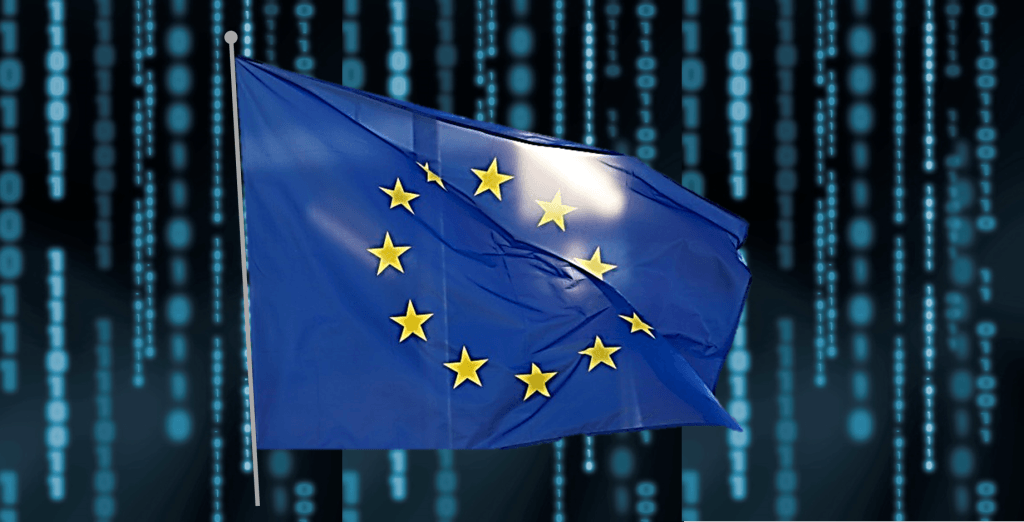
[authorbox authorid=”90″ title=”The Author”]
Sofia, 25-26 June 2018. The forum of the Digital Assembly has reunited this year in Bulgaria. In the words of the international broadcasting station of Bulgaria, this was “the biggest event during Bulgaria’s Presidency of the Council of the EU, dedicated to digitization”[i].
The event was preceded and followed by other two events, ‛The Autonomous Machines World from Berlin’ and ‛Smart Cities and Communities’ also sustained in Sofia by the General Assembly.
The leaders from the European Council, of the big corporations, stakeholders and the political deciders have reunited all together in Sofia, Berlin, around the round table to discuss about the future of digital society. The reunions were organized at a month after the European Commission has adopted the GDPR new directive through which is encouraged the development of the single digital market.
Last year, in Berlin, on 8 June the Wear-it festival made a huge propaganda for the services created by the Artificial Intelligence (AI) and encouraged the interdisciplinary cooperation, dialogue, between artists, engineers and IT specialists.
This kind of cultural manifestations, like the Wear-it festival from Berlin, fill up the EU Agenda of events during the last up to next year. It’s not a random of fact that these cultural manifestations have preceded the changing of the old directive, Data Protection Directive and one of the most important events from this year, the reunion of the Digital Assembly in the capital of Bulgaria.
After how was not quelque chose hasard, that with two years ago, on 5 July 2016, the European Commission and the European Cyber Security Organization (ECSO) have signed the contractual Public-Private Partnership (cPPP) on cybersecurity. The Wear-it festival, the cPPP, made part from Horizon 2020 Program, for Research and Innovation financed by the European Commission.
An economic revolution was announced with two years ago. The single digital market, cybernetic security was already put in discussion on 5 July 2016, so much earlier than 25 May, respective 25-26 June 2018. Günther H. Oettinger, the EU Commissioner for Digital Economy and Society at that moment, has declared after the signing of the Public-Private Partnership: “Cybersecurity should be a European standard, a European culture on the highest level”[ii].
Now that revolutions are announced by the changing of the legislative measures or by cultural events is not a new thing in history. Many of the modern revolutions have started in that way, by changing the laws and through propaganda.
The reasons that the French revolutionaries have invoked at 1789 are not too far from the reasons that EU parliamentarians invoke today. To save France from poverty becomes today to save Europe from the financial crisis, a possible economic collapse.
The solution for eventual collapse that should be avoided is the single digital market which will reduce the fragmentation of the trade also the costs, on which the entrepreneurs had to support until now, because of the limitation of the national borderlines. Through the erasing of the national borderlines is expected to increase the flux of transactions on the Common Market, as well as the economical investments, the employments, in a few words the welfare of the EU citizens and of the member states.
For this increase, the European Commission has decided to consolidate the infrastructure by modernizing the institutions from the public and private sector. Billion of Euro was allocated for the European public administration, research and innovation, agriculture, security and defense, and more[iii].
Digital is present everywhere in the daily life, thus the digitization of the economy would be a natural consequence on this road driven by the economical laws and technological development. “Evolution, not revolution” were the spoken words of Khalil Rouhana, in the session of presentations from the Digital Assembly 2018. We should emphasis more the idea of evolution, of the Progress, instead to speak about a revolutionary element in this process of the transformation of the society.
Other voices did not hesitate to compare the digital transformations of our post-modern society with the 4th industrial revolution. The digital revolution would be than one of the greatest movements that happened since the very beginning of the eighteenth century. When, after the Industrial and Marxist revolution, the action replaced the thinking activity, as in the way the fabricari, later the labour of people took the place of contemplation[iv].
Today, automatization of the human labor is already an accomplished fact. The autonomous machines which are perfectly adjusted to all the commodities produced for consumers’ society execute many of the human operations. In a close future, after ten, twenty years, may even replace humans in doing their job.
The digitization will increase the number of employments, but in the same time may decrease the employments[v]. Because it will have a great impact not only in economy, in the development of the Common Market, of modernizing the public administrations, the healthcare services and so on; also, in transformation of the human labor.
The future of Europe is shaped in economical and technological terms[vi]. More than a national event, one of the biggest events that took place this year during Bulgaria’s Presidency of the Council of the EU, the reunion of the Digital Assembly may be seen as an international event with a great impact on the restructuration of the European society, on the future of the digital world.
[i] The event has been opened by the Prime Minister of Bulgaria, Boyko Borisov and Mariya Gabriel, European Commissioner for Digital Economy and Society. In this direction, see the breaking news of Radio Bulgaria from the following web address: http://bnr.bg/en/post/100988030/digital-assembly-2018-taking-place-in-sofia.
[ii] About the Public-Private Partnership (cPPP) on cybersecurity, see the following web address: https://ec.europa.eu/digital-single-market/en/cybersecurity-industry#cppp.
[iii] For further information, see the presentation of Khalil Rouhana, ‛Digital in the upcoming Multiannual Financial Framework’, from 25 June, which has been sustained in frame of the communication sessions of the Digital Assembly 2018. Khalil Rouhana is Deputy Director-General at DG Connect, The Directorate-General for Communications Networks, Content and Technology. His public presentation can be seen at: http://www.videliostreaming.com/Paris1/ec.europa.eu4/2018-06-25_1h/.
[iv] With refer to the overturn of the traditional hierarchy, see Hannah Arendt, The human condition (Second Edition, introduction by Margaret Canovan), The University of Chicago Press, Chicago, 1998, pp. 79, 289.
[v] The algorithms were used for the development of the market until now and that was quite adequate; but, today, the algorithms are used in politics and we don’t know how adequate that is anymore. We recommend seeing the presentation of Peter Kouroumbashev sustained in frame of the workshop of the Digital Assembly, Artificial Intelligence – Today and Tomorrow –, from 26 June 2018: http://www.videliostreaming.com/Paris1/ec.europa.eu4/2018-06-25_1h/.
[vi] The Digital Single Market strategy was adopted on the 6 May 2015, with one year earlier the closing of the Public-Private Partnership (cPPP) on cybersecurity and three years before to be adopted the new directive on the protection of the personal data. In this direction, see: https://ec.europa.eu/digital-single-market/en/policies/shaping-digital-single-market. The reunion of the Digital Assembly from this year, in Sofia, is in a crucial moment because the European Council has called for the full implementation of the Digital Single Market strategy. Regard to this, see the web reference: https://www.starts.eu/agenda/digital-assembly-2018-sofia-bulgaria/detail/.




